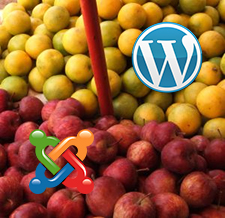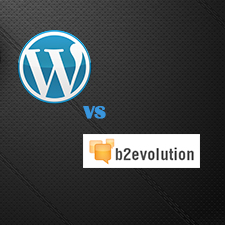
This Drupal vs Joomla comparison is mainly written for those who have limited knowledge about these 2 content management systems, thus feel difficult to choose between them. Without doubt, both Drupal and Joomla are popular CMSs that have been trusted and utilized by millions of webmasters on the web, but which is more powerful?
In the following, we’d like to present the pros and cons of these 2 CMSs, and compare them based on flexibility, support, usability, SEO-friendliness, and many other important aspects.
Pros and Cons of Drupal
As one of the most award-winning open source content management systems, Drupal has been utilized as the backend framework for more than 2.1% of all websites all over the world which include the official website of the White House. As written in PHP and MySQL, it can run well on any computing platforms supported by the web servers that are capable of running this scripting language and database.
Pros

- Community Support – Drupal has been developed, maintained, and updated by a large and professional community composing of more than 630,000 experienced users and developers. This means whenever you encounter any problems during the Drupal handling process, there are a lot of experts and professionals available for you to ask for help.
- Extensibility – Since February 2014, Drupal supports more than 30,000 free add-ons that are community contributed. With these powerful modules, users can add new features or customize the appearance of Drupal sites beyond the core installation.
- Free of Charge – Drupal is distributed under the GNU General Public License, meaning that people can download and use it without spending even one penny.
Cons
- Advanced Knowledge Required – Drupal is mainly designed for specialized users with advanced knowledge and strong coding capabilities. Therefore, if you are newbie, you may feel this CMS is complicated and hard to use.
- Sophisticated Interface – The user interface of Drupal is sophisticated that is more suitable for developers.
Pros and Cons of Joomla
Joomla is another free and popular CMS for content publishing online. As of February 2014, this tool has been downloaded for more than 50 million times by users worldwide. As compared, it can be estimated as the second most popular CMS on the web after WordPress.
Pros

- Usability – Joomla offers an intuitive UI coming with a lot of graphical icons that are easy to understand. This means users can figure out everything easily and quickly without a steep learning curve.
- High Functionality – Joomla offers a large number of extensions within a wide range of categories. Each of these add-ons can add different features and capabilities on the website. So far, there are more than 7750 extensions and nearly 4000 templates available for users to choose.
- Community Base – Like Drupal, Joomla also has a powerful developer community. With the help of these developers, Drupal can be updated for better performance constantly, along with more useful plugins.
Cons
In fact, Joomla only has one major disadvantage – the lack of search engine optimization. In order to make a Joomla powered website SEO-friendly, users have to carry out a ton of works like plugin installation. Otherwise, the site can hardly be ranked highly in the searching result page.
Drupal vs Joomla
To be honest, both of the 2 CMSs are free and open source, coming with a powerful community support and a lot of competitive plugins. Therefore, to analyze their differences deeply, we have done a comparison in the following.

Learning Curve – Joomla Wins
Drupal is mainly developed for professional experts with a certain degree of computer knowledge, while Joomla is designed for the common users. In this case, Joomla is undoubtedly easier to learn and handle than Drupal.
User-Friendliness – Joomla Wins
People handle the CMS by making use of the user interface. After carefully learning and comparing the UI of them, we have found that Joomla has done a better job offering a user-friendly interface.
Security – Drupal Wins
Due to the fact that Drupal targets on developers, it is more focused on the safe and security than Joomla to avoid vulnerabilities and hackings. Besides, it has a lot of related extensions to boost the level the security to the highest extent.
Speed – Joomla Wins
In order to speed up the webpage loading, Drupal users have to download the caching or some related plugins to enhance performance. Joomla, however, has a cache system by default to improve the page loading speed effectively.
Summary – Joomla Wins
According to the information discussed above, both Drupal and Joomla have some advantages and drawbacks. However, as the majority of webmasters are common users who only know the most basic knowledge of CMS, we finally decide to recommend Joomla as it is more user-friendly.
After choosing Joomla as your website building tool, now it is time to select a web hosting company. In below, we have listed the top 3 Joomla web hosts available in this industry, offering budget-friendly service with rich features, excellent hosting performance, and responsive technical support.
















